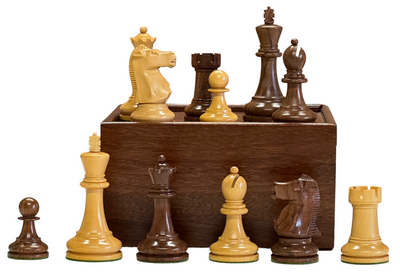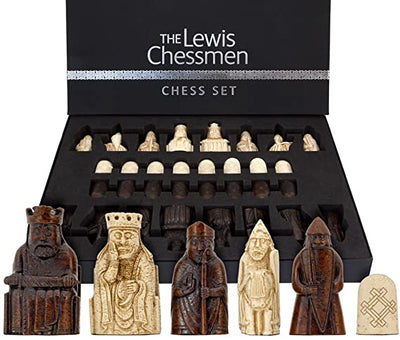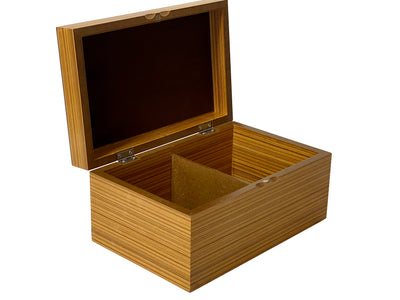Bobby Fischer- The Troubled Chess Genius
In 1972, the U.S. found an unlikely weapon in its Cold War battle against Soviet Russia: a teen chess prodigy by the name of Bobby Fischer. Though Mr. Fischer would be celebrated for many years to come, as the world's greatest chess champion, Bobby Fischer, unfortunately, died in obscurity following his descent with mental challenges.
If you are an avid chess player, there is no doubt you have heard the story of Robert James Fischer before, and many will argue that there has never been a better chess player. To this day, Bobby’s games are meticulously scrutinized and studied by professionals and chess enthusiasts alike.
Bobby Fischer has been compared to chess computers who have no noticeable weaknesses... or, as a Russian grandmaster described him, “an Achilles without an Achilles heel.”
Despite Bobby Fischer’s undefeated status in the halls of chess history, Fischer expressed a disturbing and unpredictable private life. The mind of Bobby Fischer was fragile as it was genius. 
If we look back on Bobby Fischer's life, you can pinpoint the pinnacle of his childhood that undoubtedly started his first mental disturbances...
Fischer was born in 1943, he was the progeny of two very intellectual people.
Regina Fischer (nee Pustan), Bobby’s mother, was of Jewish heritage and was fluent in six different languages. She also studied and later obtained a Ph.D. in medicine. It is believed that Bobby Fischer was actually the result of an affair between his mother — who was married at the time to Hans-Gerhardt. — and a Jewish Hungarian scientist by the name of Paul Nemenyi.
Nemenyi was best known for writing a significant book on mechanics and was known to have worked closely with Albert Einstein’s son, Hans-Albert Einstein, in a hydrology laboratory in the University of Iowa.
It was Hans-Gerhardt Fischer, who was ultimately listed on Bobby Fischer’s birth certificate, despite being declined entry into the U.S due to his German citizenship. It is believed that during this time, Pustan and Nemenyi conceived Bobby Fischer.

Fischer’s named father, Hans and Mother Regina became estranged in 1945. She was left to raise her newborn son and her daughter, Joan Fischer, all alone.
Growing up, Fischer started to enjoy the game of Chess in Brooklyn at the young age of six. His natural ability and unmistakable focus saw him enter his first ever chess tournament at just nine years old.
Bobby quickly took over the U.S. chess scene, and by the age of 13, he took the title of U.S. Junior Chess Champion. Fischer later played against the best chess players in the United States in the U.S. Open Chess Championship in that same year. Though it was his brilliant performance against International Master Donald Byrne that marked Fischer as one of the greatest chess players of all time.
From 1957 to 1967, Fischer managed to win eight U.S. Championships and subsequently earned the only perfect score in the history of the tournament (11-0) during the 1963-64 year.
But as his success was on the incline, so was his ego and his distaste for the Russians and Jews grew.
In 1962, Bobby Fischer created an article for Sports illustrated entitled, “The Russians Have Fixed World Chess.” In it, he accused three Soviet grandmasters of agreeing to draw their games against one another prior to the tournament — an accusation that at the time was seen as controversial is now believed to be right on the money!
Over the next year, Fischer beat his competition, including Soviet grandmaster Mark Taimanov. Bobby’s only loss during this time-frame was to a 36-year-old World Champion by the name of Boris Spassky in the 19th Chess Olympiad in Siegen, Germany.
The game between Spassky and Fischer represented the Cold War between the two countries. The game itself was a battle of wits which in many ways clearly represented combats during the Cold War. A battle of the minds. The greatest fight against the minds was set to take place 7972- Chess World Championships - Location: Reykjavik, Iceland.
As much as Bobby Fischer wanted to embarrass the Soviets, he was more concerned that the organizers of the tournament obeyed his demands... The prize pot HAD to hit $250,000, as well as a much-anticipated call from Henry Kissinger, for Fischer to be convinced to participate in the match. Needless to say, the organizers gave him absolutely everything he asked for.
July 11, 1972 was the date the first game took place. Fischer was off to a bad start. Just a one-off move left his bishop unable to move, trapped, and as a result...Spassky won.
Fischer put the blame on the cameras. He stated he could hear the noises they were making and as a result, it broke his concentration. The organizers refused to take the cameras away and, in a raging protest, Fischer did not show up for the second game.
20 years went by, with Bobby Fischer not participating in a single competitive chess game. When Fischer was asked to defend his title, 1975, he responded with a list of 179 demands...not a single one was met and as a result, he refused to play.
Bobby Fischer was unfortunately stripped of his world chess title.
Fast forward to 1992, Bobby regained some of his former glory by winning an unofficial match with Spassky, Yugoslavia. For this, he violated economic sanctions against Yugoslavia and was forced to live in a foreign country or face arrest upon his return to the U.S.
Fischer’s mother and sister sadly died during his exile and he was not able to travel back home to attend their funerals.
Fischer passed a comment on the September 11th terrorist attacks back in 2001, quoted “I want to see the U.S. wiped out”. He later was arrested for traveling to Japan on an American passport that was revoked in 2004, and in 2005 he applied for and full Icelandic citizenship, which was approved.
He lived the last years of his life in Iceland in obscurity and that one step closer to madness.
It is rumoured that Fischer had Asperger’s syndrome, others speculate that he had a split personality disorder. Maybe he just inherited madness from his biological father’s genes.
Bobby Fischer died in 2008 of kidney failure. He was in a foreign country, excluded from his home.
He was 64 years old— which is hauntingly the same number of squares on a chessboard.







